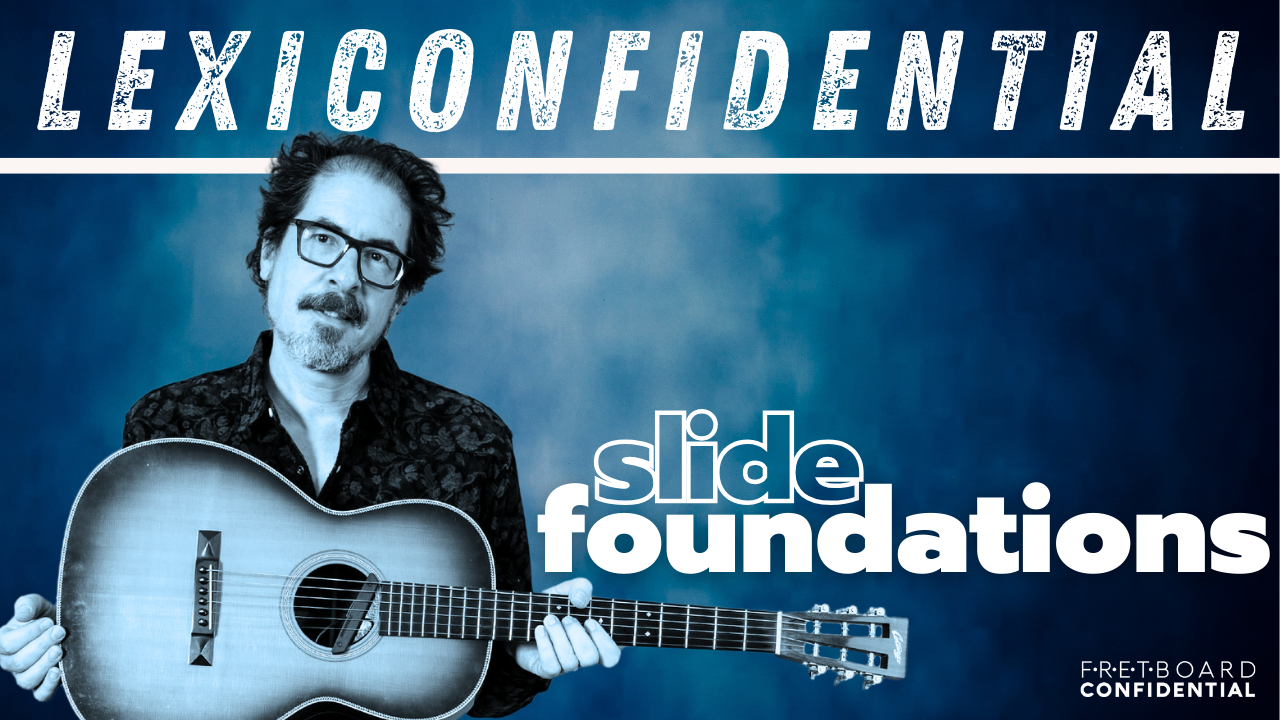Use what you already know
Slide can seem intimidating because it involves not just a new technique, but generally a new tuning as well. But while a new tuning can feel disorienting at first, you only need a few chord shapes to get started, and the tuning itself does a lot of the heavy lifting for you – you're already tuned to the most important chord, so a I chord doesn't take any fingering at all, and it often takes only a finger or two to form a IV or V chord – the same chords, for the same chord progressions, that you've been playing all along.
And while playing slide does involve both a new piece of hardware (the slide itself, typically worn on your pinkie) and some new techniques, you're going to actually be using the slide less than half the time. Solo fingerstyle slide guitar still involves a lot of the things you're already familiar with: open position chords and licks, alternating-thumb grooves, and I-IV-V chord progressions, largely still played with fretted notes.
A Three-Step Method to Get Started With Fingerstyle Slide

Know The Tuning
Slide and open tuning go hand in hand. With just a few new chord voicings and blues scales, you'll soon be playing alternating-thumb grooves in open D tuning (DADF#AD).

Learn The Techniques
Playing slide starts with getting a good sound. You'll learn to use left-hand damping and angling the slide for a clean sound, plus tips on choosing a slide and guitar setup.

Put It All Together
Combine slide licks with fretted chords and melodies over a groove, and start playing complete tunes, accompanying yourself singing, or just improvising on the blues.
The Secret To Great-Sounding Slide
If you want to play solo fingerstyle slide guitar, you only need to play slide maybe 25% of the time. And, you need to learn a few chords in order to get around in open D tuning – your basic I IV and V chords. The rest comes down to things you're probably already familiar with – playing an alternating-thumb bass, and combining that with melody notes on the top three strings, almost entirely in open position.
In this workshop, we'll start by getting oriented in open D: where to find I IV and V, how to play them with the alternating bass, and how to put some simple melodies on top of that.
Next, we'll go over some basic rules for getting a clean slide sound and how to make an unaccompanied slide melody sound good.
Finally, we'll combine those open-position chords and licks with slide melodies up the neck to play a complete tune over an alternating-thumb groove.
The materials and techniques you learn in this class will work whether you want to play instrumental arrangements of traditional tunes, accompany your own singing, or just improvise on the blues.
HOW IT WORKS
Sign Up
Use the secure form below to sign up for and attend the live online workshop (or watch the replay later).
Take The Workshops
Learn open D chord voicings and slide technique basics and apply them to the blues.
Transform Your Blues
Watch the replay for an entire year, organize your practice plan, and make slide an integral part of your style.
Can I take this workshop if I've never played slide before?
Do I need a guitar that's set up for slide?
Do I already need to know how to fingerpick?
Is this workshop part of the Fingerstyle Five membership?
Will there be more workshops in this series?
How much does it cost?

$79 01/27/24 SLIDE FOUNDATIONS
LEARN THE CHORDS, GROOVES AND TECHNIQUES YOU NEED TO START PLAYING FINGERSTYLE SLIDE GUITAR
Sign Up Now!
Get a year's access to Slide Foundations for $79.



